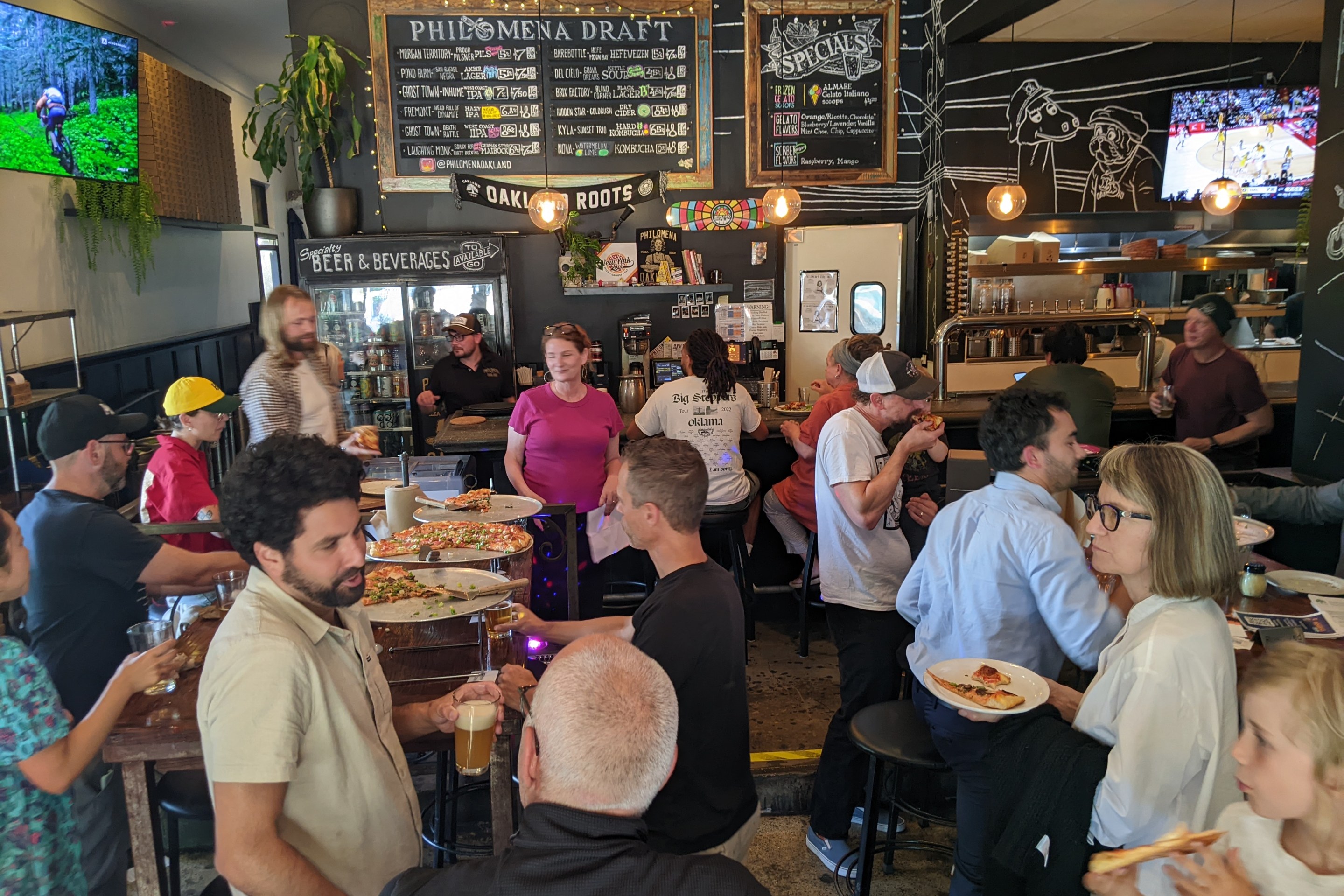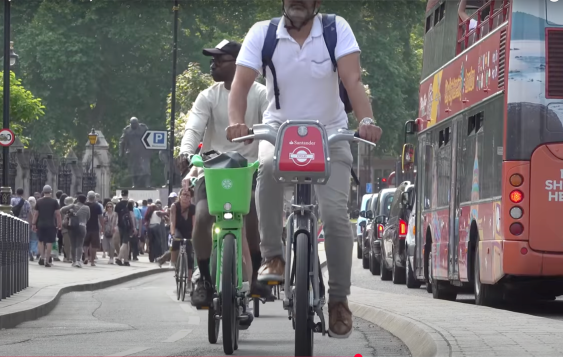 Image: AC Transit
Image: AC TransitOne day after Governor Arnold Schwarzenegger tooted his own horn on climate change and carbon reductions mandated under AB 32, another California transit operator is taking drastic steps to stop the hemorrhaging of its operations budget by cutting back on future innovation, in no small part due to the fact that the governor and the state legislature zeroed out the State Transit Assistance (STA) fund.
The AC Transit Board of Directors will meet tonight at 6 pm to discuss a proposal by General Manager Rick Fernandez to divert over $80 million from a future Bus Rapid Transit (BRT) corridor running from Berkeley through Oakland to San Leandro, a move that still faces legal and political challenges and that advocates fear could kill BRT in the East Bay.
Fernandez, in a detailed memo to his board members [PDF], called for moving $35 million in Congestion Mitigation and Air Quality (CMAQ) federal funds that have already been obligated by the MTC and the FTA for the BRT project, as well as $45.6 million in Regional Measure 2 (RM2) funds, in order to cover the huge operating shortfall the agency is anticipating over the next six years. AC Transit staff estimate that the shift of $80 million would avert more than 50 percent of the planned service cuts and line eliminations over that time period.
"The idea is to try to fill this huge budget hole that we find ourselves in and we're trying to leave no stone unturned to do that," said AC Transit spokesperson Clarence Johnson. "Subsequently, the BRT money, if it can possibly be redirected, it would certainly be a good way to use it given our current financial situation. In terms of discussions with MTC to re-obligate the money...we have merely notified MTC that we would like to engage in those discussions. How difficult they will be, we don't know."
No matter how difficult it may be to re-obligate the regional and federal money, a move AC Transit staff believe is within the parameters of the law, the MTC was circumspect, citing the federal rules that often prevent capital funds from being used for operations. "We have some ability to convert capital money into operating funds but that ability is limited," said MTC spokesperson Randy Rentschler. "Voter approved RM2 had both operating and capital funds but the dollars in question here are capital funds. On the CMAQ side, CMAQ funds can be used for operations under certain circumstances."
Rentschler did not elaborate on those circumstances, saying only that they needed to study the matter further, assuming AC Transit's board directs staff to move forward with the proposal. MTC boss Steve Heminger and AC Transit GM Fernandez would not meet until mid-October at the earliest, according to the memo.
Proponents of the BRT project are understandably concerned with the proposal, noting that the shift of local matching funds (RM2) could jeopardize the "High" rating the FTA has given the AC Transit BRT project and make it even more difficult for the project to secure the balance of the $237 million required for completion.
Sarah Syed, a commissioner of the Berkeley Transportation Commission, said they had passed a motion opposed to delaying the BRT project because of the risk it would pose to its completion. In an email to Streetsblog, she wrote: "BRT has been a local and regional priority for over five years and AC Transit is less than a year away from obtaining federal approval of their environmental document. Diverting capital funding from BRT at this time will make this project far less competitive at the federal level, and the years of delay may cause AC Transit to have to restart the entire environmental process."
Steve Gellner, a member of Friends of BRT, said that he was opposed to shifting funds for innovative future transit service to fill a temporary budget shortfall. "It's really just as bad as the Governor taking the STA funds or the MTC taking the stimulus funds (to give to the [Oakland Airport Connector]). Personally, I strongly favor implementing BRT and at the same time, reducing downtown parking and/or increasing parking fees."
BRT opponents were supportive of the proposal. Michael Katz, a member of Berkeleyans for Better Transportation Options (BBTOP), which has proposed an alternative to full-format BRT that would not remove a vehicle lane of travel on Telegraph Avenue, said:
It seems a no-brainer that AC Transit's board should support this proposal. The agency's general manager estimates that it would prevent about half of the crippling service cutbacks reductions now on the table, protecting that level of service over the next six years. And by redefining its Telegraph/International Blvd. project to meet real community needs and requirements, AC Transit could still meet funders' restrictions and avoid leaving federal money on the table. Our group's 'Rapid Bus Plus' evolving proposal is one step in that direction.
Some advocates suggested that moving RM2 funds from BRT was tantamount to contradicting a public vote, given that the BRT project was part of the measure, a contention that AC Transit's Johnson denied. "I would say based on a series of some twelve public workshops and forums and hearing literally from hundreds of people... we believe that the public mandate is for a reliable and vital public bus system... In fact, in many respects, we are adhering to the public will because one of the questions that has constantly been put forth is 'why are you pursuing a BRT in the face of this current economic crisis?'"
John Knox White of TransForm said his group will call on AC Transit's board tonight to
take action only on the CMAQ funds in the short term, while
simultaneously convening a task force to further analyze other options
before trying to divert RM2 funds.
"This changes how this money was moved by the voters and it deserves more than a few days of discussion. If this is a short-term problem because of the economy, then they should have a short-term solution. We don't need to be gutting long-term improvements for riders."




